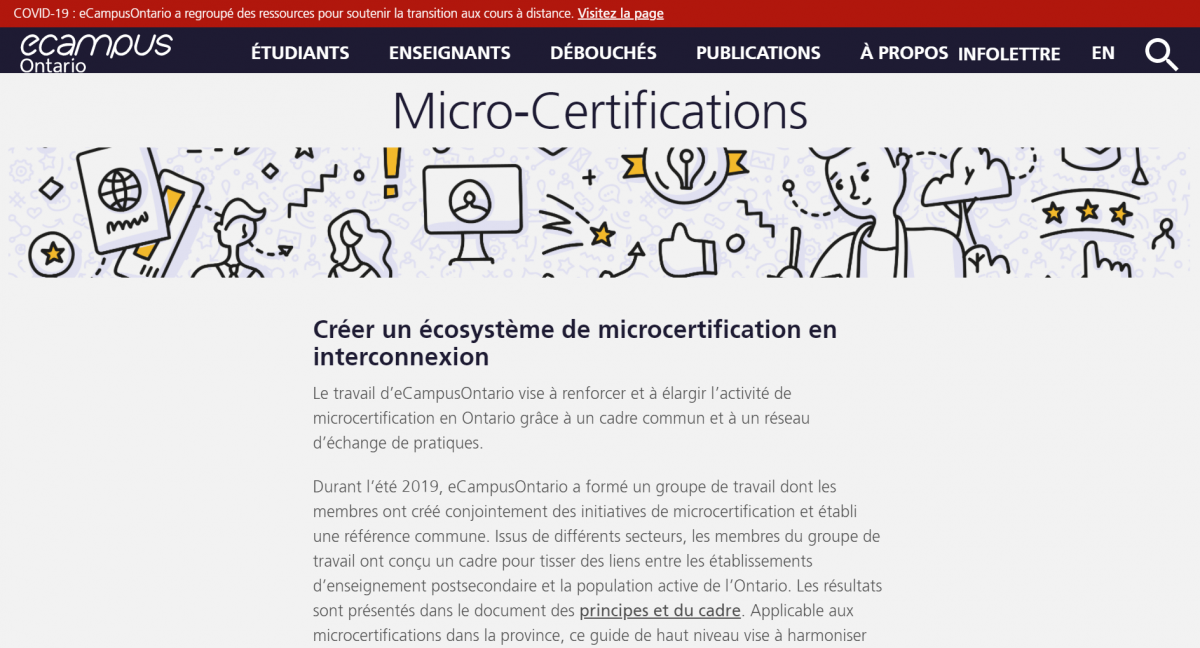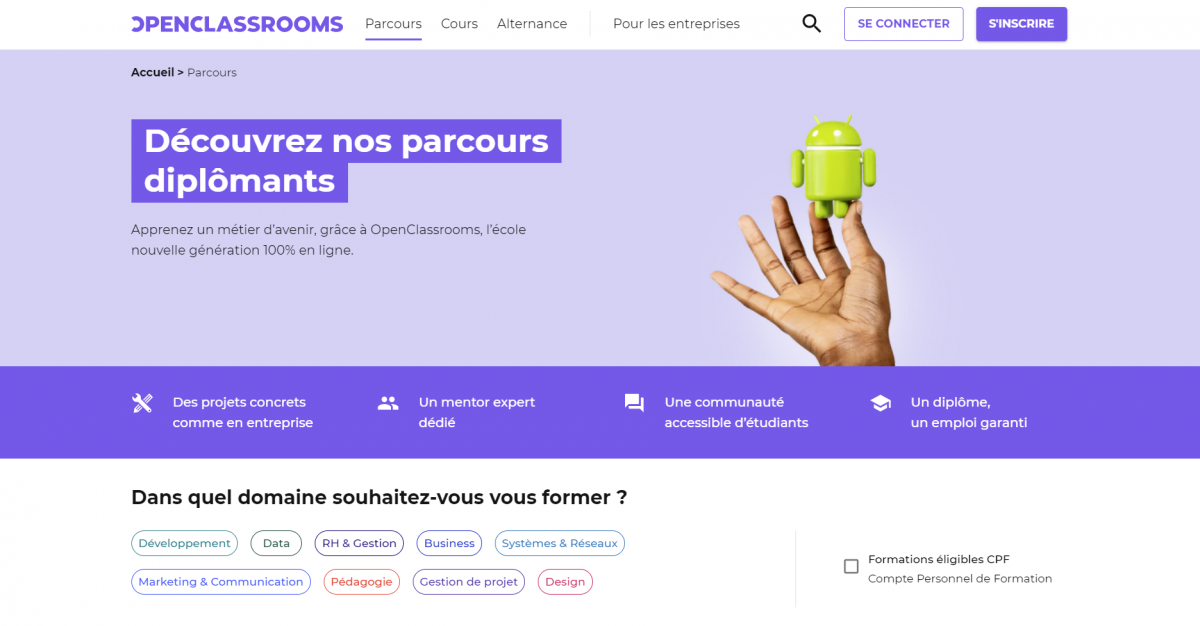Improving employability
The pandemic is requesting traditional methods to deliver job-relevant skills, accelerating the transition to more innovative practices. A wealth of initiatives to improve the employability of young people is emerging.
The current economic situation is resulting in highly volatile labour markets. To address this, TVET stakeholders are focusing on new methods for improving employability, aligning skills supply to skills demand and promoting public-private partnerships.
The pandemic is placing TVET systems under even greater pressure to react with agility to an unstable and changing reality. Innovative methods, whether developed through public or private initiatives, are emerging in response to the needs of tomorrow's labour markets.
Promising tools have been developed during the pandemic to provide guidance and improve the employability of young people entering the labour market. Innovative applications enable TVET stakeholders to better monitor and guide the career paths of learners.
- The application Inserjeune, to provide data-based career guidance
|
This application developed by the Institut de la Francophonie pour l'Education et la Formation (IFEF) measures the employment rate of young TVET graduates and the satisfaction of their employers. The priority targets are the member countries of the Organisation Internationale de la Francophonie (OIF). By cross-referencing several national databases, this digital tool produces statistics to identify the jobs and sectors that offer employment opportunities. Inserjeune can be an instrument for the external evaluation of TVET systems. It is a good opportunity to improve the training provision and better adapt vocational training to employment and market needs. |
- The Areebajobs platform to give more voice to African talents
|
Areebajobs is a platform developed by the consultancy and recruitment company Aldelia, which aims to make it easier for African talents to access sustainable jobs and opportunities, while creating a more inclusive international labor market, where African qualifications and skills are well represented. In addition to providing talent with job opportunities, training solutions and advice on CV writing, interpersonal skills and interview coaching will be provided to candidates on the platform to increase their employability. In order to match job offers with qualified resumes, the platform relies on Artificial Intelligence technology. |
- The application Mihnati to monitor the new trainees in Algeria (under development)
This tool, announced at the end of 2020 by the Algerian government, for monitoring trainees, aims to guide them towards jobs aligned with their qualifications and with the skills needs of companies. Based on statistics collected over time, Mihnati also intends to help update training programmes.
Physical distancing makes it difficult to provide educational support to enable young people to make informed decisions about their future. In this context, these applications respond to a dual need: facilitating the orientation choices of young people and improving employability. More broadly, these tools, developed under national or transnational initiatives, could become powerful instruments for managing training systems.
The current crisis has catalysed the rise of "micro-credentials" as a new way to recognize skills. “Microlearning” is the delivery of small ‘chunks’ of educational content, leading to micro-credentials. The training content and certification are generally designed and managed by private companies to fill skills shortages in their field of activity, and to compensate for the lag in the supply of training, since TVET systems often struggle to respond to rapid changes in the labour market.
The development of these micro-credentials modules and ‘bite-sized learning’ responds to the need for a more flexible skills recognition system. At a time when labour markets are undergoing major changes, this is a key issue for both employees and employers, particularly in Africa, where the informal economy predominates and it is difficult to access official training. Accordingly, certain initiatives deserve to be better known.
- Google professional certificates for in-demand jobs
|
The technology giant has developed short "career programmes" for potential future employees. The courses are developed and delivered by Google employees working in the various learning areas offered. These free-of-charge training programmes teach participants essential skills, putting them on the fast track to in-demand jobs once they complete the training. No previous degree or experience is required to take the courses. Successful learners earn a Google Career Certificate. The company will view it as equivalent to a four-year degree for similar positions, leading to a certification framework parallel to the official system. |
- The common framework of eCampusOntario to coordinate micro-certification initiative
|
This non-profit organization brings together 45 public universities and colleges in Canada. Its goal is to strengthen and expand micro-credential activity in Ontario by providing a common framework to build connections between post-secondary institutions and the local workforce. Thanks to a major awareness-raising and communication effort, this framework has evolved into a network for the sharing of best practices. A growing number of companies have committed to developing training content and issuing micro-credentials to future employees. The initiative helps achieve better skills alignment, taking into account the changes and new requirements of the market. |
Facilitate the pooling of resources and content in the TVET sector has always been important and it is even more so today. Here is an interesting African initiative in this domain.
- The Platform for sharing tools and resources for vocational training, for pooling and sharing TVET resources among African countries
|
This platform has been supported since 2017 by IIEP-UNESCO Dakar and the Consultation Framework of Ministers in charge of Employment and Vocational Training (CCMEFP) of the WAEMU region. Each member can explore and adapt the resources of the others, in the area of TVET (Benin, Burkina Faso, Côte d'Ivoire, Guinea Bissau, Mali, Niger, Senegal, Chad and Togo). The platform has definite advantages in terms of boosting employability and employment, promoting resource pooling among the countries involved and fostering a regional culture of sharing. |
Faced with labour market changes accelerated by the pandemic, it is increasingly difficult for students and young workers to find jobs. To improve their employability, some online learning platforms have set up mentoring systems. Here is just one example.
- The Openclassrooms education website offers one-on-one mentorship sessions
|
This online training website has built its diploma courses around weekly video mentorship sessions with an expert in the field chosen by the young learner. Mentorship helps learners identify the specific skills they need to achieve their career goals. It is also useful when it comes to building soft skills, giving learners an extra advantage on the job market. |
Do you want to learn more about the digitization of TVET learning environments? IIEP-UNESCO Dakar has selected some additional resources on the subject, in English.







